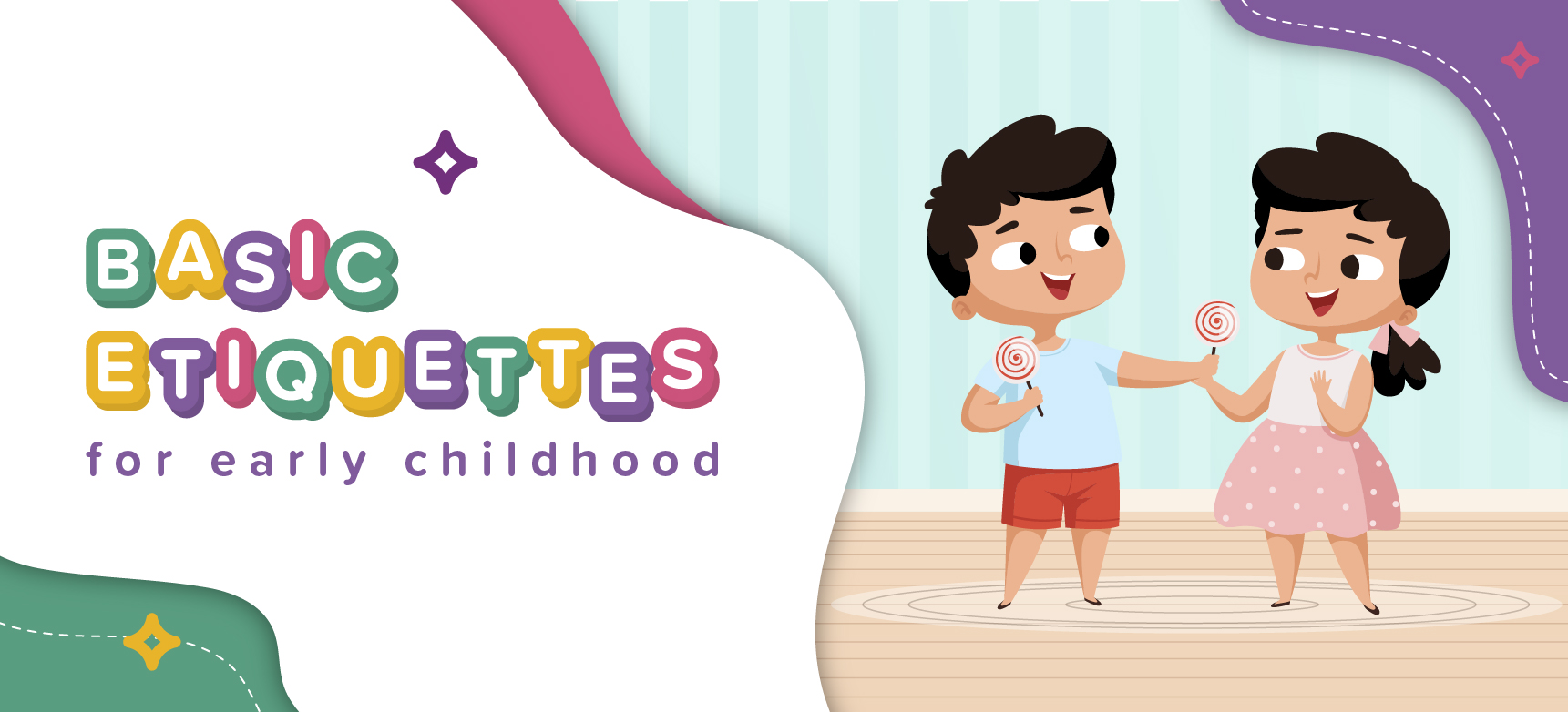
Besides the academic curriculum, instilling manners is equally essential for childhood development. It contributes greatly towards raising a contented teenager and a well-spoken adult. The lack of this learning can create challenges when your little one tries to fit into a social circle. And during adulthood, making friends and navigating their path on the work front becomes tough.
A child’s mind is like a sponge from birth to five years, where learning and absorbing come easy to them. Hence teaching them these basic skills from a young age allows them to process and make the said skills a part of their personality. It’s the cornerstone of raising an individual who can adapt to situations without any difficulty.
Here’s a guide on what etiquette’s are necessary and how to teach them to your child.

In a house, there is a little something for each one of us to do, including your toddler. Yes, they could lend a helping hand too.
You could divide the tasks into self-care activities, tidying up the house and helping out in the kitchen. It could be small acts like picking up toys after playtime, setting the table, placing clothes in the drawer, refilling water for the pet, packing their school bags, dressing for school, throwing trash in the dustbin or assembling and mixing ingredients of a recipe in the kitchen.
Guidelines for parents to follow:

It is vital to secure your child from harm’s way. Due to your child’s unawareness, many dangers pose a threat to their safety. The lessons on safety etiquette can be distinguished in these domains:
They should refrain from touching – hot, electrical, sharp, or medicinal – objects in the house.
Safety inside the vehicle and around it- Don’t forget to switch on child safety in your car while travelling with a child. Teach them not to use the car underneath as a hiding place, car keys as a toy, and playing inside the car is a big no-no.
Dangers of fire- A matchbox and lighter are not playing objects.
Road safety- Knowing not to run in a public street, being able to decipher road signs and traffic lights, not letting go of the adult’s hand, and walking carefully are a few essentials.
Guidelines for parents to follow:
These lessons can be taught through interactive lessons, safe play, the repetition of the safety rules and practising safety etiquette with them.

A child who shares is learning a lot in the process- the ability to make friends, empathise, manage emotions, and wait for their turn. It helps curb the selfish streak at a young age.
But knowing how to practice this act does not come naturally to a child because they cannot comprehend the differences easily. With step wise guidelines, being able to share should not be too hard for a child.
Guidelines for parents to follow:

When a child knows how to keep themselves clean and well-groomed and tend to their basic needs, it instils self-confidence and self-independence in them. This takes them a long way in accomplishing their academic and occupational endeavours.
Guidelines for parents to follow:

Knowing how to use the appropriate phrases like ‘thank you’ and ‘please’ helps a child forge social connections. It plays a crucial role in helping one lead a harmonious life. These virtues also speak volumes about how you have raised your children and benefit them in their future relationships.
Guidelines for parents to follow:
To successfully establish this virtue in your children, give these tips a shot:
Do let us know if these tips came in handy in the comments section.
Coupling her love for children with a zeal for writing, Sonakshi pens down words to make even the smallest difference in the lives of young readers. She believes words are a powerful tool that, when used wisely, can bring about a positive difference. In her spare time, she likes to prop open a book, scribble poetry, or go out on long walks for any stroke of inspiration!